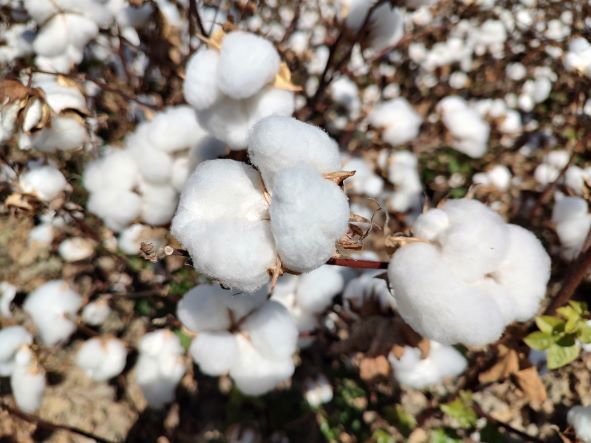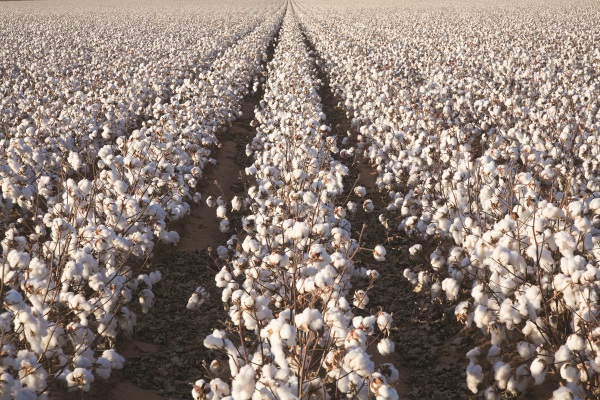U.S. Trade Deal With Pakistan Meets Resistance in Congress
A new Obama administration trade measure, intended to provide jobs in Pakistan as an alternative to the lure of Islamic extremism, could mean little because of protectionist language approved in the House of Representatives, according to American retailers and Pakistani manufacturers.
The “Reconstruction Opportunity Zones” legislation, which is now before the Senate, allows for duty-free export of textiles to the U.S. from militancy-plagued northwest Pakistan, but it specifically excluded cotton trousers and shirts and other popular clothing items.
The administration strongly supports the zones, which if successful, could generate employment and help quell the terrorist threats to the U.S. and its forces fighting the Taliban-al Qaida insurgency in neighboring Afghanistan.
“If this (bill) was amended, it could really turn things around,” said Afan Aziz, the chairman of the NWFP wing of the All Pakistan Textile Mills Association. “It could, we estimate, provide employment for 700,000 to 800,000 people, and think of all the families that would support. Then, no one would want to turn to the gun.”
Richard Holbrooke, U.S. special envoy for the region, said the last month the aim of the bill is to rebuild the lives of refugees displaced by the Pakistan army’s clashes with local Taliban insurgents and al Qaida. “An opportunity for them to have this kind of chance through this bill is all the more important,” Holbrooke said.
On the other side of the debate are U.S. textile manufacturers, who said that any easing of the restrictions approved by the House last month will threaten American workers in a sector that’s already lost tens of thousands of jobs.
Lloyd Wood, a spokesman for the American Manufacturing Trade Action Coalition, which represents the textile industry, described the attempt to expand the zones plan as a “windfall” for importers and retailers.
“If the importers don’t have to pay the duty, that money is going to go right into their pockets. They won’t pass that money on to the consumers, and they certainly won’t pass that money to Pakistani workers,” Wood said.
The bill in question, the Pakistan Enduring Assistance and Cooperation Enhancement Act of 2009, was introduced to support the nuclear-armed U.S. ally, which is struggling against an al Qaida and Taliban insurgency, and trying to avert economic collapse.
Pakistan’s Northwest Frontier Province and tribal area, a strip of land sandwiched between the province and Afghanistan that’s provided sanctuary to anti-Afghan and anti-Pakistani insurgents, have borne the brunt of the violence and would benefit most from the reconstruction zones. While the U.S. is promising to triple civilian aid to Pakistan to $1.5 billion a year, the zones are an attempt to allow the country to trade its way out of trouble.
“This is a war-affected area. If industry is not installed, unemployment not removed, then the ‘war on terror’ cannot be won,” said Ilyas Bilour, a member of Pakistan’s parliament from the NWFP. “People have to eat.”
A representative for Sen. Maria Cantwell (D-WA), a Senate sponsor, said details of the legislation are still under discussion and should become clear by mid-July.
Pakistan supplies about 3 percent of U.S. imports of clothing and other textile products, or $3.1 billion out of $93 billion in 2008, according to the Commerce Department.
Pakistan’s textile industry is concentrated in the economically dominant Punjab province in the east. Allowing duty-free exports from the North West Frontier Province could provide an economic boost in the region. Total industrial employment in NWFP is no more than 1.5 million, out of an estimated population of 21 million, according to the All Pakistan Textile Mills Association.
A coalition of U.S. retailers including Wal-Mart, the U.S. Chamber of Commerce and brands such as Levi Strauss wrote the Senate Finance Committee on June 22 pleading for more mainstream clothing products to be included in the opportunity zones and for duty-free status to apply across all of Pakistan.
The bill excludes top-selling products such as cotton trousers and shorts and cotton knit tops, items on which the U.S. currently levies a 15 percent to 25 percent import duty, but it allows less popular and less profitable items such as cotton dressing gowns and silk underwear.








